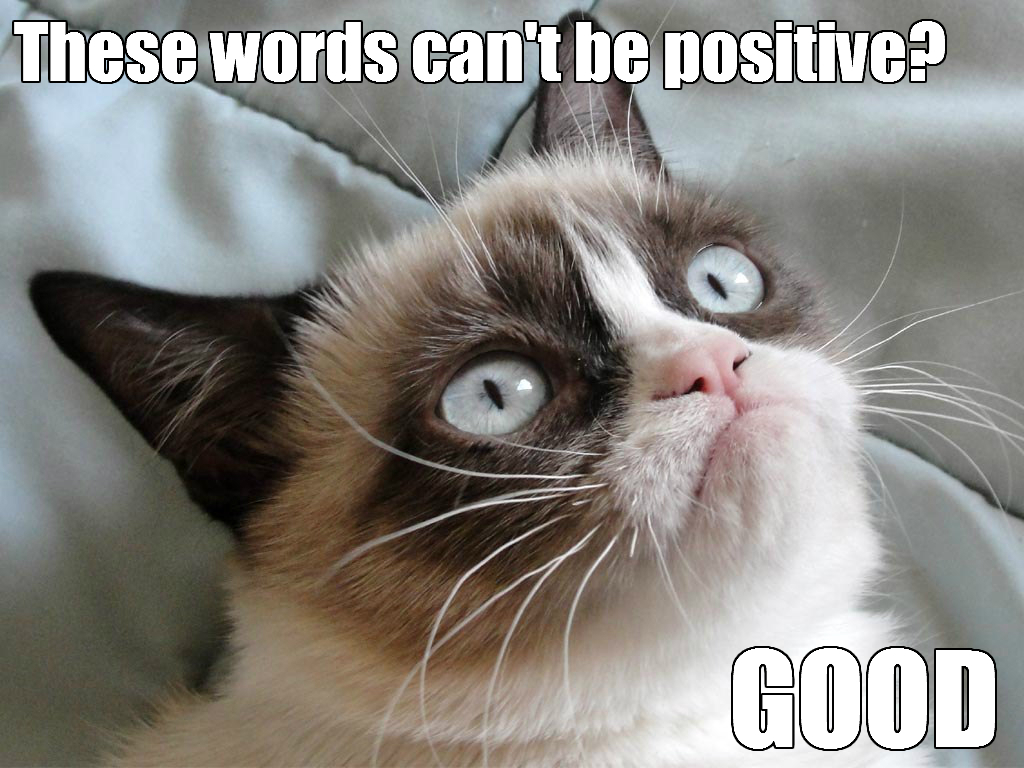
Prefixes are little groups of letters that are usually attached to the beginnings of words to modify their meanings. And interestingly, the most common ones all usually carry negative meanings, like “anti-,” “de-,” “dis-,” or “un-.” These prefixes can be added to words to create pairs of opposites: Something can generate or degenerate, be irrational or rational, or be able or unable. But every once in a while, you’ll come across a word with a negative prefix that doesn’t have a mate, also sometimes known as an unpaired word: The positive version of the word either isn’t a real word or isn’t one that’s commonly used. Let’s take a look at some of these common lonely, grumpy words.
- Dejected: Derived from the Old French dejeter, “to throw or cast down,” this word today means “downhearted” or “depressed.” I’m a bit dejected that “jected” isn’t a word, but I can see why, since in this case, the “de-” conveys the meaning of “down,” not “un-.”
- Discombobulated: Here’s a good example of why people get confused by our language sometimes. Americans made this word up entirely; it doesn’t have an etymology, other than that it began as “discombobricate,” a fun word coined to convey the idea of confusion.
- Disgruntled: Sometimes, in very old words, “dis-” is meant to be an intensifier rather than a negative prefix. That’s the case with this word, which combines “dis-” in the sense of “very” with an obsolete word derived from the Middle English gruntelen, “to grumble.” So if you’re disgruntled, you’re very grumbly, which sounds about right. Interestingly, while “gruntled” should then mean “only moderately grumbly,” it’s now become a back-formation: Humorist P.G. Wodehouse coined “gruntled” from “disgruntled” to mean “put in a good mood.”
- Disgusted: Blame the French for this one: It comes from the Middle French desgoust, which means “distaste.” Alas, we inherited that word without its opposite.
- Disheveled: Here’s another we picked up from the French, this time from the Old French descheveler, “to disarrange the hair” (with the old root des- meaning “apart” and chevel meaning “hair”).
- Dismayed: In this word, we see another use of “dis-” as an intensifier, combined with the Old French esmaier, “to trouble or disturb.” So if you were “mayed,” you’d probably still be upset, just less so.
- Impetuous: You could blame the French for this one, too, since this word came to us via the Old French impetuos, but the root is the Latin impetus, meaning “attack.” The modern term implies more of an emotional force than a physical one, as it means “impulsive” or “controlled by emotion.” But we borrowed the Latin root directly, too, with “impetus” meaning “a force that causes something to happen or move.” In either case, the “im-” here was never a prefix, so it can’t be split from the rest of the word to make “petuous.”
- Inane: This word meaning “silly” or “empty-headed” comes from the Latin inanitas, meaning “emptiness.” Silly Latin … “in-” isn’t a prefix here, either, so things can’t be just “ane.”
- Incognito: With this word, “in-” is a negative prefix. It’s derived from the Latin incognitus, “in-” plus cognitus, meaning “get to know.” Why can’t you be “cognito”? That remains unknown.
- Indelible: It’s pretty much impossible to remove the “in-” from “indelible” — so the “in-” in “indelible” is indelible (say that five times fast). The root of this word comes from the Latin delebilis, which means “able to be destroyed.” Technically, “delible” actually is a word, but it’s a pretty rarely used one.
- Inept: Merriam-Webster lists this word as a definition of “inapt,” and it’s easy to see why. “Inapt” means “unsuitable”; “inept” means “unfit” or “unskilled.” Pretty similar, aren’t they? Yet for some reason, “apt” survived as a stand-alone word but not “ept.” Both derive from aptus, a Latin word meaning “unsuitable” or “improper.”
- Inhibited: The Latin habere, meaning “to hold,” is the root of this word, with the prefix “in-” here meaning, well, “in.” Put it together and you’ve got “held in,” like the actions or emotions of an inhibited person or thing.
- Inscrutable: This word comes from the negative prefix “in-” coupled with the Latin scrutabilis, derived from the verb meaning “to examine.” Its opposite is entirely scrutable: It’s a real word, though a rarely used one, meaning “comprehensible.”
- Insipid: Combine the negative “in-” with the Latin word sapidus, meaning “tasty,” and you have this word for something that’s lacking in flavor or dull. We do have a positive word for this, but it’s “sapid,” a pretty uncommonly used word meaning “flavorful.”
- Nonchalant: The French gave us this word, which consists of the prefix “non-” (meaning “not”) plus a form of the verb chaloir, “to have concern for.” As for adding “chalant” to our language, we were apparently pretty nonchalant about it.
- Underwhelmed: You can be overwhelmed, and you can be underwhelmed, both of which stem from the Middle English root whelmen, “to turn upside down,” as in a boat being engulfed by a wave. But can you be whelmed? Indeed, you can. Considering its root, though, it’s perhaps unsurprising, albeit a bit disappointing, that “whelmed” is merely a synonym for “overwhelmed.”
- Unkempt: Pair “un-” with a form of the Middle English word kemben, “to comb,” to get this word for someone or something that’s messy or uncombed. If your house is very tidy, someone might call it kempt, but it’s not likely, seeing as that’s a fairly rare word. It’s also a back-formation, coined from “unkempt” to be its opposite.
There are many more unpaired words, but these are perhaps some of the best known. Their imagined opposites have been subjects of humorists’ attentions for years, and interestingly, as with “kempt” and “gruntled,” some have even been turned into back-formations, real words on their own. It just goes to show that not only has the history of our language led to plenty of interesting quirks, but it’s evolving more of them every day.

